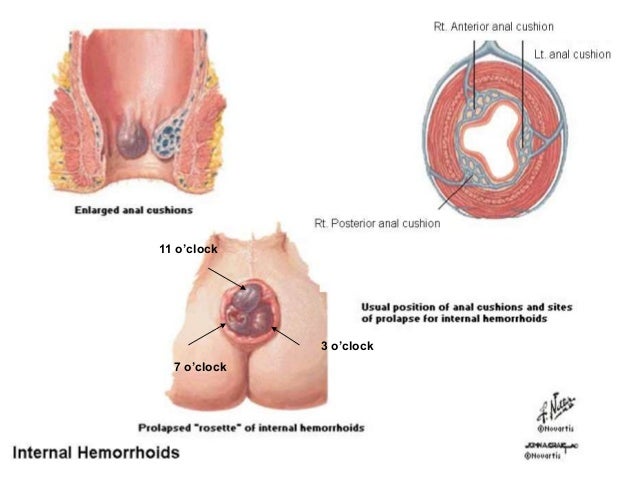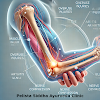Anal cushions, also known as hemorrhoids, are swollen veins in the lower rectum and anus that can cause discomfort, itching, and pain. Hemorrhoids can be internal, where they develop inside the rectum, or external, where they develop outside the anus.
The most common causes of anal cushions are straining during bowel movements, chronic constipation or diarrhea, and pregnancy. Hemorrhoids can also develop as a result of aging, obesity, or a sedentary lifestyle.
Symptoms of hemorrhoids include bleeding during bowel movements, itching or irritation around the anus, and a lump or swelling near the anus. Mild hemorrhoids can be treated with lifestyle changes, such as increasing fiber intake, drinking plenty of water, and avoiding sitting for long periods of time.
Over-the-counter medications, such as creams, ointments, or suppositories, can also provide relief from symptoms. In some cases, a doctor may recommend a procedure to remove the hemorrhoid, such as rubber band ligation or sclerotherapy.
To prevent hemorrhoids, it's important to maintain a healthy lifestyle, including eating a high-fiber diet, staying hydrated, and exercising regularly. Avoiding straining during bowel movements and taking breaks from sitting for extended periods of time can also help prevent the development of hemorrhoids.
 |
| Anal cushions - Health and Wellness |
What are the alternative medicine or therapies for anal cushions
There are several alternative medicine or therapies that may provide relief from the symptoms of anal cushions. While some of these therapies have limited scientific evidence to support their effectiveness, they may be worth exploring as a complementary treatment option alongside conventional medical treatments. Here are some examples:
Sitz baths: Soaking in warm water for 10-15 minutes several times a day can help relieve the discomfort and itching associated with hemorrhoids.
Essential oils: Applying essential oils such as lavender, tea tree, or chamomile to the affected area may help reduce inflammation and relieve itching.
Witch hazel: Applying witch hazel to the affected area with a cotton pad or compress can help reduce inflammation and relieve itching.
Aloe vera: Applying aloe vera gel or cream to the affected area may help soothe the skin and reduce inflammation.
Acupuncture: Some people find that acupuncture can help relieve the pain and discomfort associated with hemorrhoids.
Herbal remedies: Certain herbs such as butcher's broom, horse chestnut, and flavonoids may help reduce inflammation and improve blood flow to the affected area.
It's important to note that while these alternative therapies may provide relief from the symptoms of anal cushions, they should not replace medical treatment for more severe cases. Always consult with your doctor before trying any alternative medicine or therapy to ensure that it is safe and appropriate for you.
In conclusion, anal cushions or hemorrhoids are a common condition that can cause discomfort and pain. While mild cases can often be treated with lifestyle changes and over-the-counter medications, more severe cases may require medical intervention. By maintaining a healthy lifestyle and being aware of the symptoms of hemorrhoids, you can reduce your risk of developing this condition.
Life style modifications for anal cushions
There are several lifestyle modifications that can help alleviate the symptoms of anal cushions. These modifications may also prevent the recurrence of hemorrhoids. Here are some examples:
Increase fiber intake: Eating a diet high in fiber can help prevent constipation and reduce the strain on the rectal area during bowel movements. Good sources of fiber include fruits, vegetables, whole grains, and legumes.
Drink plenty of water: Drinking enough water and other fluids can help keep stools soft and prevent constipation.
Exercise regularly: Regular exercise, such as brisk walking, can help improve bowel function and reduce the risk of developing hemorrhoids.
Take breaks from sitting: Sitting for long periods of time can increase pressure on the rectal area, which may contribute to the development of hemorrhoids. Taking frequent breaks to stand up and move around can help relieve this pressure.
Avoid straining during bowel movements: Straining during bowel movements can worsen existing hemorrhoids and increase the risk of developing new ones. To avoid straining, take your time on the toilet, use a stool to elevate your feet, and avoid holding your breath during bowel movements.
Keep the anal area clean: After bowel movements, gently clean the anal area with moist wipes or a soft, wet towel. Avoid using dry toilet paper, which can further irritate the area.
Avoid irritants: Avoid using harsh soaps, perfumes, or other products that may irritate the anal area.
In conclusion, making these lifestyle modifications can help alleviate the symptoms of anal cushions and prevent the recurrence of hemorrhoids. It's important to note that if you have persistent or severe symptoms, it's important to see a doctor for an accurate diagnosis and appropriate treatment.



0 Comments